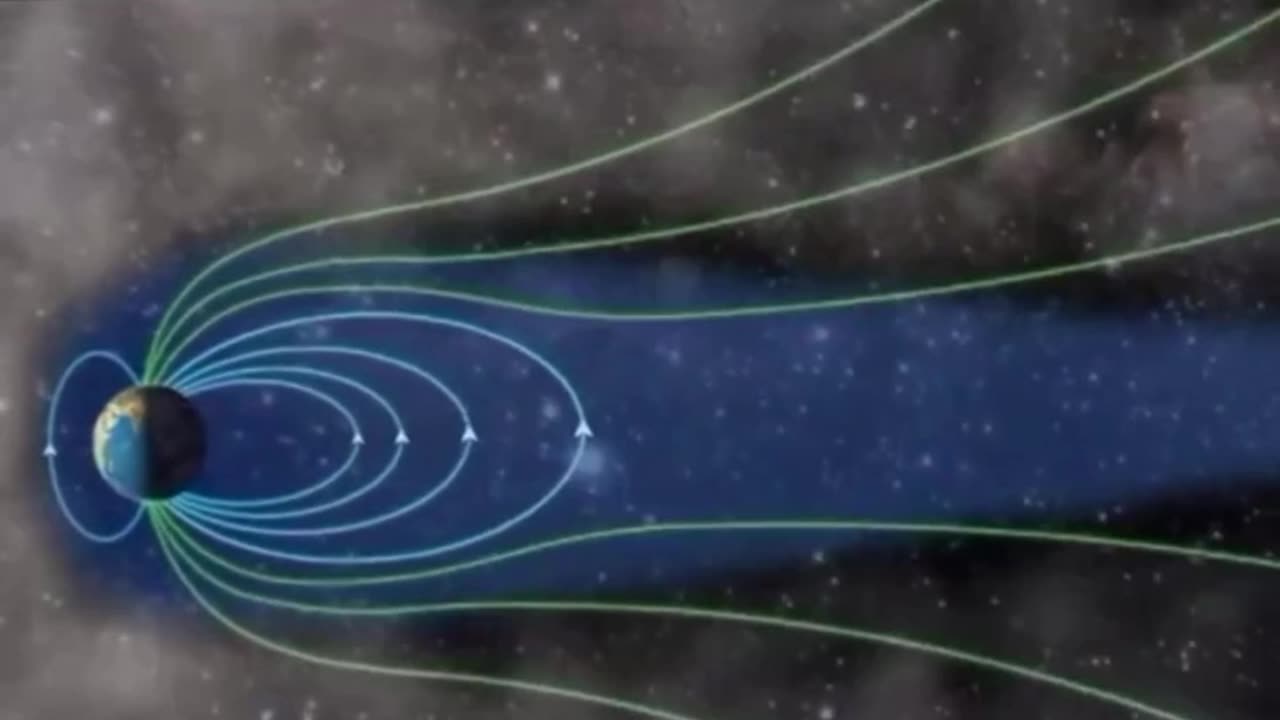Premium Only Content

How different planets react to Solar Storm?
Different planets in our solar system can react differently to solar storms, depending on factors such as their atmosphere, magnetic field, and proximity to the Sun. Here are some general ways in which different planets can be affected:
1. Earth: Solar storms, specifically coronal mass ejections (CMEs) and solar flares, can impact Earth's magnetic field and cause geomagnetic storms. These storms can disrupt radio communications, satellite operations, and power grids. They can also lead to beautiful auroras (Northern and Southern Lights) at high latitudes.
2. Mercury: Mercury has a weak magnetic field and a very thin atmosphere, so its response to solar storms is relatively minimal. However, increased solar activity can cause changes in the planet's exosphere (thin outer atmosphere) and induce temporary magnetic events.
3. Venus: Venus has a thick atmosphere composed mainly of carbon dioxide, which protects it from many direct effects of solar storms. However, fluctuations in the solar wind can lead to disturbances in the planet's ionosphere.
4. Mars: Mars has a very thin atmosphere and a weak magnetic field, so its response to solar storms is limited. However, increased solar activity can affect the planet's ionosphere and cause minor disruptions in communication systems used by robotic rovers.
5. Jupiter: Jupiter has a strong magnetic field, and its intense radiation belts trap charged particles. Solar storms can cause the planet's auroras to brighten and intensify. Jupiter's moon Io, which has active volcanoes, can also experience increased volcanic activity during solar storms.
6. Saturn: Saturn has a strong magnetosphere and displays impressive auroras at its poles. Solar storms can cause these auroras to become more active and dynamic.
7. Uranus and Neptune: These ice giant planets have their own unique magnetic fields and are primarily affected by their internal processes. Solar storms might have limited direct impact on them due to their significant distance from the Sun.
It's important to note that our understanding of how planets react to solar storms is continually evolving, and new discoveries are being made as we gather more data from space missions and observations.
-
 10:17
10:17
MattMorseTV
16 hours ago $10.55 earnedTrump's DOJ just DROPPED a NUKE.
63.8K72 -
 2:09:32
2:09:32
Side Scrollers Podcast
19 hours agoStreamer DIES Live On Air + Your Food is Poison + Xbox Announces $900 Handheld | Side Scrollers Live
19.6K11 -
 15:32
15:32
GritsGG
15 hours agoFull Auto ABR Sniper Support! Most Winning Quad Win Streaking!
7.82K2 -
 7:42
7:42
The Pascal Show
14 hours ago $0.41 earnedBREAKING! Police Provide UPDATE In Emmanuel Haro's Case! Is Jake's Lawyer Lying To Us?!
9.21K -
 2:29:46
2:29:46
FreshandFit
7 hours agoAfter Hours w/ Girls
108K73 -
 5:28
5:28
Zach Humphries
13 hours ago $0.90 earnedNEAR PROTCOL AND STELLAR TEAM UP!
15.4K2 -
 1:09:57
1:09:57
Brandon Gentile
1 day ago10,000 Hour BITCOIN Expert Reveals Why $13.5M Is Just The Start
20.5K3 -
 2:03:55
2:03:55
Badlands Media
7 hours agoDevolution Power Hour Ep. 382: DOJ Coverups, Clapper’s Team Sport & Trump’s Countermoves
133K22 -
 2:06:30
2:06:30
Inverted World Live
11 hours agoDon't Approach the Zombie Rabbits | Ep. 95
53.9K24 -
 3:26:45
3:26:45
Drew Hernandez
7 hours agoISRAEL PLANNING POSSIBLE DRAFT IN USA & TRUMP'S VIEW ON ETERNAL LIFE ANALYZED PT 2
41.6K50